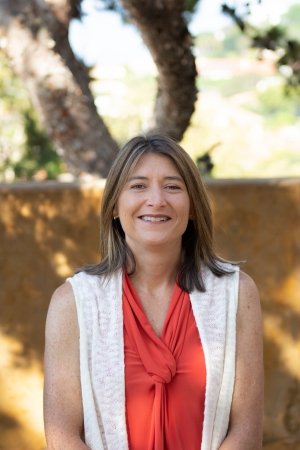Displaying items by tag: trauma
Join us on Friday, July 22, 2022 from 12:00 p.m. - 2:00 p.m. for this CEU virtual event featuring presentations from three of our psychologists! Free to attend or $20.00 for 2.0 CEUs pending approval by UPA, NASW-UT, UAMFT, and UMHCA. Everyone who registers will be emailed the recording, presentation slides, and CE Quiz within one week following the event.
This lecture will review the criteria and traditional conceptualizations of post-trauma reactions from the DSM-5 and discuss emerging research of less traditional conceptualizations of trauma.
Specifically, the presenters will explore post-trauma reactions in the context of relationships (e.g. related to betrayals and affairs); presenters will highlight the proposed criteria for complex trauma and discuss trauma-informed interventions that address its unique sequalae of symptoms; and presenters will discuss considerations of trauma-informed care for children and adolescents.
Learning Statement:
At the conclusion of this presentation, attendees should have a better understanding nontraditional forms of trauma including affairs and relationship distress; a better understanding of PTSD and C-PTSD/complex trauma disorder; and a better understanding of trauma-informed care for children and adolescents.
Learning Objectives:
- Review literature of trauma, PTSD, and the overlap between related conceptualizations
- Gain a better understanding of complex trauma disorders
- Identify considerations of trauma-informed care for children and adolescents
References:
American Psychiatric Association. (2013). Diagnostic and statistical manual of mental disorders (5th ed.). https://doi-org.ezproxy.frederick.edu/10.1176/appi.books.9780890425596
Brown, E. J., & Campbell, C. L. (2009). Children’s refractory posttraumatic stress disorder: An ecological, evidence-based perspective. In D. McKay & E. Storch (Eds.), Cognitive behavior therapy for refractory cases in children and adolescents (pp. 201-229). New York, NY: Springer.
Cohen, J. A., Mannarino, A., P., & Deblinger, E. (2012). Trauma-Focused CBT for children and adolescents: Treatment applications. The Guilford Press: New York, NY.
Cook, A., Spinazzola, J., Ford, J., Lanktree, C., Blaustein, M., Cloitre, M., ... & Van Der Kolk, B. (2005). Complex trauma in children and adolescents. Psychiatric annals, 35(5), 390Kliethermes, M., Schacht, M., & Drewry, K. (2014). Complex trauma. Child and Adolescent Psychiatric Clinics, 23(2), 339-361
Luyten, P., Campbell, C., & Fonagy, P. (2020). Borderline personality disorder, complex trauma, and problems with self and identity: A social‐communicative approach. Journal of Personality, 88(1), 88-105.
Nikulina, V., Hergenrother, J. M, Brown, E. J., Doyle, M. E., Filton, B. J., & Carson, G. S. (2008). From efficacy to effectiveness: The trajectory of the treatment literature for children with PTSD. Expert Review of Neurotherapeutics, 8, 1233-1246.
About the presenters:
Stephanie Taylor, Ph.D. is a licensed clinical psychologist who specializes in the treatment of trauma and its collateral effects. In addition to providing Cognitive Processing Therapy (CPT) and Eye Movement Desensitization and Reprocessing Therapy (EMDR), Dr. Taylor recognizes the significant overlap between mind and body and often includes somatic therapies in session. A background in trauma has informed Dr. Taylor’s work with couples as well. She brings a trauma-informed perspective into session and offers couples therapy based in the Gottman Method. In addition, Dr. Taylor has a background in humanistic and existential therapy which has proven particularly helpful in the exploration of spirituality, meaning, identity, and sexual wellness.
Jordan Kugler, Ph.D, is a licensed clinical psychologist at UCEBT who specializes in Dialectical Behavior Therapy (DBT), Prolonged Exposure (PE), Acceptance and Commitment Therapy (ACT), Cognitive Processing Therapy for PTSD (PTSD) and Cognitive Behavioral Therapy (CBT). Jordan completed an APA accredited internship at the Salt Lake City VA healthcare system. Jordan has experience in several settings, including VA outpatient clinics, community mental health settings, student counseling centers and trauma-informed outpatient clinics. He has research and clinical interests in suicidal behavior and post-trauma reactions. Jordan’s therapeutic style is upbeat, collaborative and emphasizes identifying, developing and actualizing his client’s values.
Sloan Strike, Ph.D., is a licensed psychologist at UCEBT who specializes in evidenced-based therapies with adolescents, young adults, and their families. Over her 12 years in New York City, Sloan specialized in providing family therapy and parenting support. She values working with youth and their families to create opportunities for improved communication and healthier relationships. She is also certified in Trauma-Focused Cognitive Behavioral Therapy, and has extensive training working with adolescents and young adults who have experienced trauma and suffer from anxiety and depression. Additionally, Dr. Strike is certified in The Gottman Method for couples therapy.
Program Notices:
Conflicts of Interest: None noted.
Commercial Support: None.
Originally presented: Friday, April 10, 2020
1.0 CE hour (UPA & NASW-UT)
To receive presentation recording, slides, and evaluation form for CE credit, register here: https://form.jotform.com/200574631299156
About: Trauma Processing Treatments have advanced significantly in recent years, and this type of psychological care carries a unique set of ethical issues. This talk will provide an overview of current topics, ethical pitfalls, and resources for navigating the often complicated terrain of helping trauma survivors heal. Given the brevity of the talk, it will not provide an in-depth analysis, but rather increase awareness and provide useful follow-up resources. It is intended that the application of content will help providers avoid entering into ethically problematic situations as well as increase consultation seeking. There are no known risks to attendees beyond mild psychological distress related to exposure to trauma case examples. It is expected that this exposure is consistent with existing types of occupational stress
About the presenter: Ashley Greenwell, Ph.D. Clinical Psychology, has worked in the field of trauma for 15 years and is the Clinical Director of UCEBT. She also previously served as a core Ethics Team member, consulting for Veterans Affairs on issues of Bioethics.
Shelle Welty, Psy.D.
Dissociation With Trauma, Now What?
Dissociation from Trauma - Presentation by Ashley Greenwell at Generations 2019
Resources:






